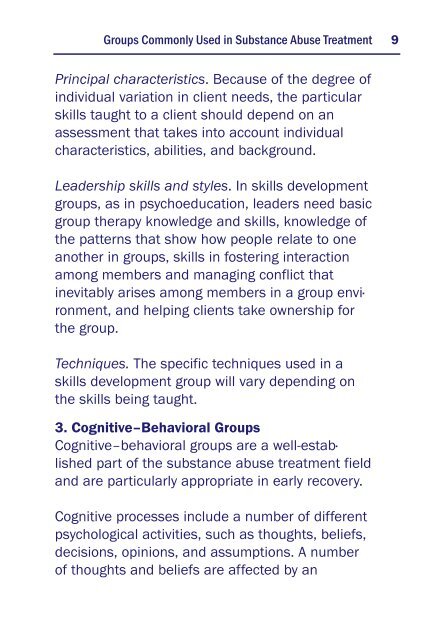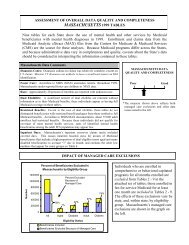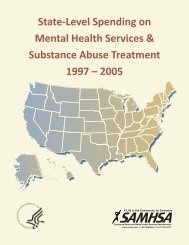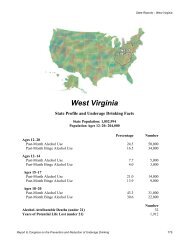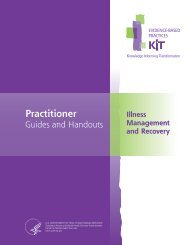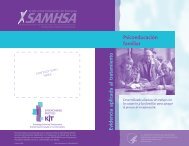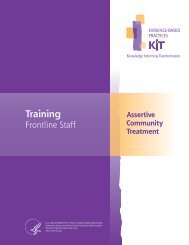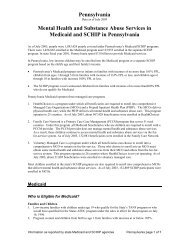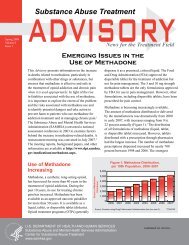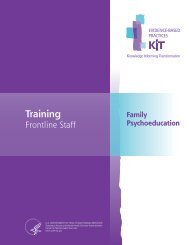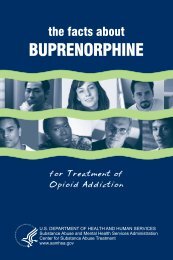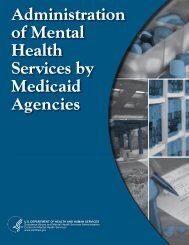Quick Guide for Clinicians - SAMHSA Store - Substance Abuse and ...
Quick Guide for Clinicians - SAMHSA Store - Substance Abuse and ...
Quick Guide for Clinicians - SAMHSA Store - Substance Abuse and ...
You also want an ePaper? Increase the reach of your titles
YUMPU automatically turns print PDFs into web optimized ePapers that Google loves.
Groups Commonly Used in <strong>Substance</strong> <strong>Abuse</strong> Treatment9Principal characteristics. Because of the degree ofindividual variation in client needs, the particularskills taught to a client should depend on anassessment that takes into account individualcharacteristics, abilities, <strong>and</strong> background.Leadership skills <strong>and</strong> styles. In skills developmentgroups, as in psychoeducation, leaders need basicgroup therapy knowledge <strong>and</strong> skills, knowledge ofthe patterns that show how people relate to oneanother in groups, skills in fostering interactionamong members <strong>and</strong> managing conflict thatinevitably arises among members in a group environment,<strong>and</strong> helping clients take ownership <strong>for</strong>the group.Techniques. The specific techniques used in askills development group will vary depending onthe skills being taught.3. Cognitive–Behavioral GroupsCognitive–behavioral groups are a well-establishedpart of the substance abuse treatment field<strong>and</strong> are particularly appropriate in early recovery.Cognitive processes include a number of differentpsychological activities, such as thoughts, beliefs,decisions, opinions, <strong>and</strong> assumptions. A numberof thoughts <strong>and</strong> beliefs are affected by an


